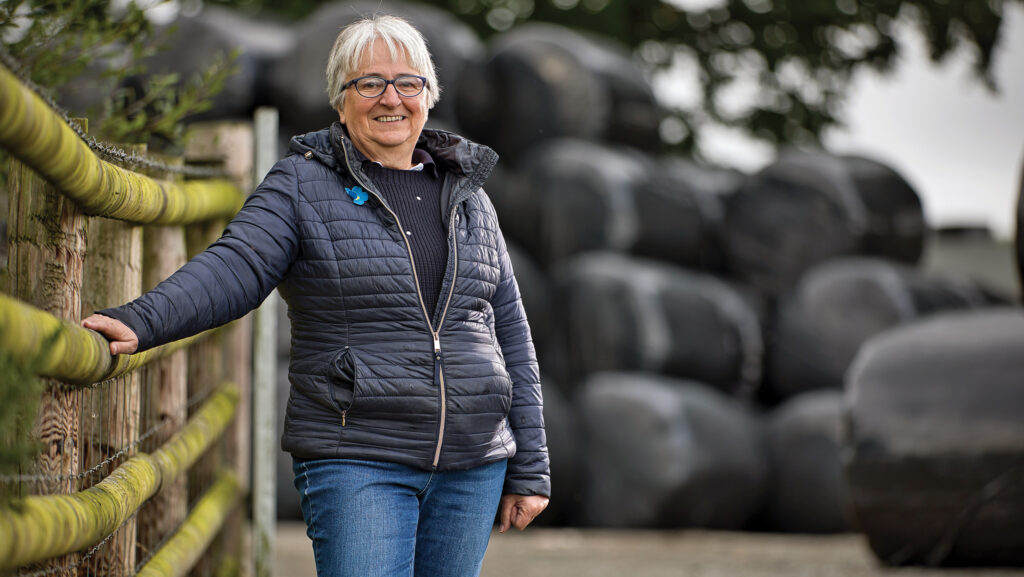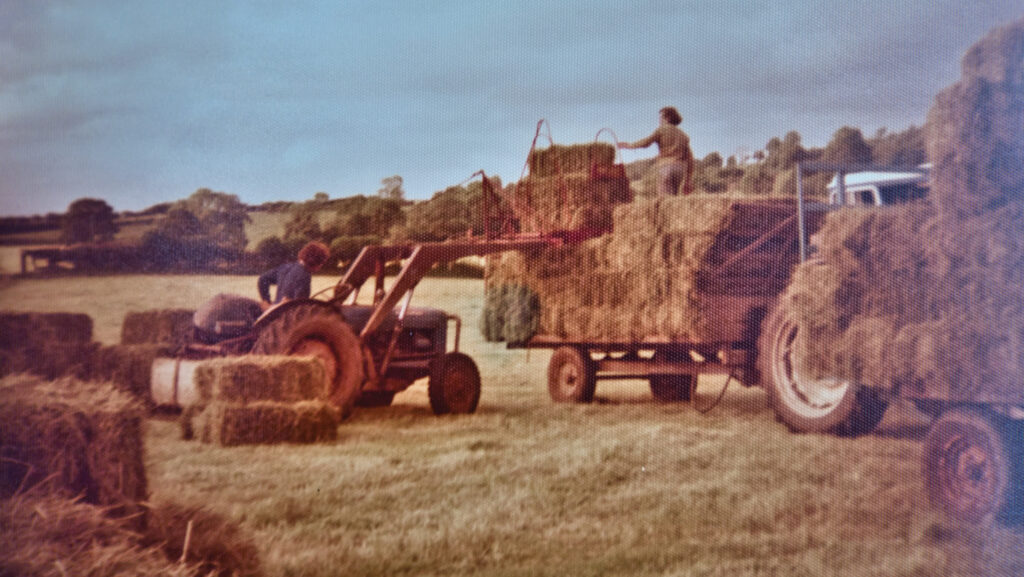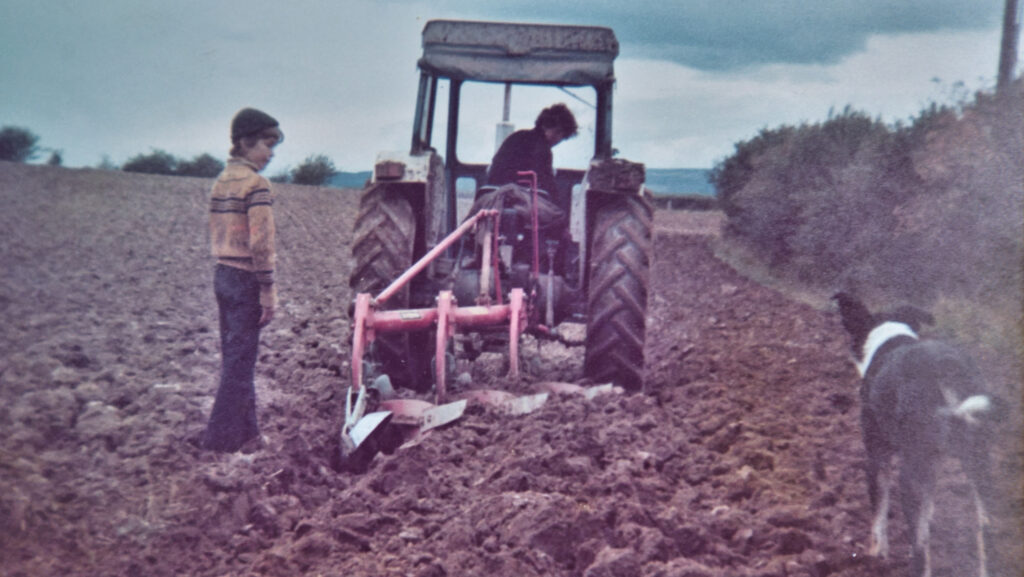Video: 90 and Counting – livestock farmer Sharon Hammond
 Sharon Hammond © Richard Stanton
Sharon Hammond © Richard Stanton Powys livestock farmer Sharon Hammond has been farming for 50 years.
As part of Farmers Weekly‘s 90th anniversary series celebrating the enduring nature of farming generations, she takes us on a journey through the decades.
See also: Video – 90 and Counting: Somerset sheep farmer John Small
Watch the full interview with Sharon in the video below.
We farm close to Llandrindod in Mid Wales. I wasn’t born and brought up on a farm, but some of my grandparents had come from farming stock so there were plenty of stories about farming.
I’ve got a very early memory of the farmer at the bottom of our garden putting hay onto the trailer with a pitchfork.
On being a farming newcomer…
When I got older I joined YFC. The skills I learned in YFC have stood me in good stead throughout my life. It is where I met my husband and became a full-time farmer.
The reaction from other people was a sort of shock-horror: “How are you going to cope? You weren’t brought up on a farm, you won’t understand what you’re marrying into.”
But my husband’s family were very welcoming. I was there one day for tea and he said, “Oh, Sharon could row-up for us.” I got a very hasty lesson in driving the tractor and rowing up, and was left to it.

© Richard Stanton
I progressed to eventually doing all sorts of jobs – mowing, harvesting, anything that needed to be done.
My late husband was an incredibly laid-back, generous person, and my father-in-law was a very forward-looking farmer.
He was also a very generous person – he decided that I was just the person to fill in all their forms for them! It was their love of farming that they imparted to me.
Farming is not just a way of life, it’s a whole community where people look out for each other. That’s the really best thing about it – that sense of community and oneness – which I’ve really cherished over the years.

© Richard Stanton
On succession…
I’ve got five grandsons – not that necessarily boys farm and girls don’t, but the next generation is there, waiting to take over.
Now, it’s down to my two sons to run the farm because their father was diagnosed with Parkinson’s and early-onset dementia in his 50s, so they had to start running the farm from a very early age.
They keenly felt the loss of their father in terms of having that mentor, but they had both come home from university hungry to progress.
They went into broiler chickens, they changed the cattle, they changed the sheep – we now have all Romneys.
We also went into alternative energy with biomass boilers to heat the chicken sheds, and solar panels.
On public perception…
The past 18 months to two years have been some of the most challenging I remember – the hike in energy prices, feed prices and interest rates, the amount of paperwork, record-keeping and inspections.
We’re actually expecting our next inspection next week having only just had one about two weeks ago.
So when people think that farmers are just doing what they want and getting away with blue murder, I’ve never shied away from inviting people to the farm to tell our side of the story.
People are becoming more disconnected from how their food is produced.
When my mother-in-law was doing farm tours back in the 1970s, she would pick up a hen for the children to stroke and they would say, “How did you get all those feathers on it?” because they had only ever seen a chicken ready to eat in a shop so didn’t realise the chickens actually had feathers.
The welfare of our livestock is absolutely everything. If I think back to the snow of 1982, my husband and his two brothers walked five or six miles carrying bales on their backs to make sure that the sheep were fed every day.
If our livestock are not doing well what we’re doing has no purpose because poor livestock will not make you money.
That’s why we turn out in the middle of the night to check on cattle, that’s why you’ll find farmers out in the middle of a field in a gale.
1950s fact file
- 1950 A Claas self-propelled combine harvester with a choice of cutter bars and a built-in baler cost £2,300
- 1953 The first National Weed Control Conference was held as chemical weedkillers started to gain popularity
- 1954 As rationing was phased out, the Milk Marketing Board was reintroduced and the private trading of livestock and meat restored
- 1958 The wettest June in 50 years caused some of the worst harvest delays and losses of the century
- 1959 Farmers Weekly featured a farmer who was using explosives to clear his ditches rather than dig them out by hand
Source: Farmers Weekly
